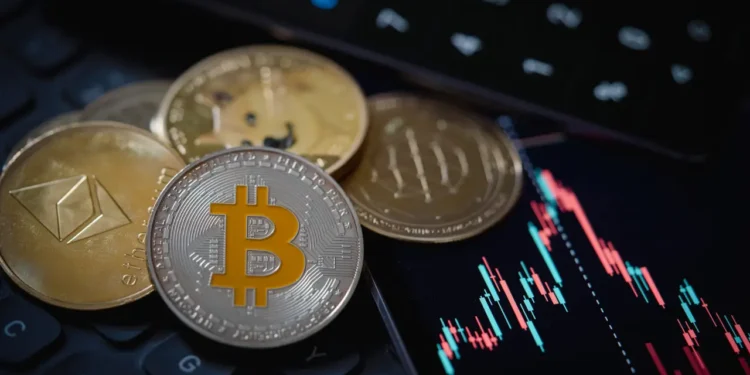Key Highlights
- Cryptocurrency adoption is growing in Nigeria as people seek to protect wealth from naira devaluation
- Digital assets offer an alternative during high inflation and economic instability
- Nigeria’s regulatory landscape continues to evolve with rules from the Central Bank and SEC
- While crypto carries risks, it provides financial inclusion and purchasing power protection
Introduction
Many Nigerians now turn to cryptocurrency for wealth preservation as the economy faces challenges.
This guide explains how crypto works as a financial tool in Nigeria and how people use it to protect their money during economic uncertainty.
Understanding Wealth Preservation in Nigeria’s Economic Landscape
Preserving wealth in Nigeria faces significant challenges. The naira’s frequent volatility and changing Central Bank regulations make traditional savings vulnerable to value erosion.
This has led many Nigerians to explore digital assets like cryptocurrency as an alternative to protect their wealth from local currency devaluation.
Key Challenges
Currency Devaluation: The government’s decision to let markets determine the naira’s value led to significant depreciation. A weak naira reduces purchasing power and makes imported goods more expensive.
High Inflation: Rising costs erode the value of money in bank accounts. When inflation outpaces interest rates, traditional savings lose real value over time.
These economic pressures have made digital assets increasingly attractive for wealth management. When the naira weakens, cryptocurrencies like Bitcoin or dollar-pegged stablecoins can help preserve purchasing power.
Traditional Methods
Before crypto, Nigerians relied on:
- Real estate investments
- Stocks and bonds through financial markets
- Foreign currency holdings (especially USD)
- Fixed bank deposits
While these remain popular, they often require significant capital and can be illiquid. Cryptocurrency offers a more accessible alternative with lower entry barriers.
The Role of Cryptocurrency in Wealth Preservation
Cryptocurrency provides a global, decentralized option for wealth protection. Unlike local currency, crypto assets aren’t controlled by any single government or institution, offering protection from domestic economic issues.
Why Crypto Appeals to Nigerians
- Inflation Hedge: Protects value when the naira depreciates
- Accessibility: Only requires internet connection
- Global Transactions: Easy cross-border payments without banks
- Asset Control: Users maintain direct control through private keys
However, significant risks include price volatility, evolving regulations, and potential scams requiring careful security measures.
Popular Cryptocurrencies for Wealth Protection
Bitcoin as an Inflation Hedge
Bitcoin, often called “digital gold,” has a fixed supply of 21 million coins, making it resistant to inflation. When the naira drops, Bitcoin’s naira price often rises, helping preserve purchasing power. Its decentralized nature provides an alternative when local financial systems struggle.
Other Leading Digital Assets
- Ethereum (ETH): Popular for smart contracts and DeFi applications
- Ripple (XRP): Used for fast, low-cost international transfers
- Litecoin (LTC): Offers faster, cheaper transactions than Bitcoin
- Stablecoins (USDT): Pegged to USD for more stability
Legal and Regulatory Landscape
Nigeria’s crypto regulations continue evolving. In 2021, the Central Bank banned financial institutions from facilitating crypto transactions, leading to increased peer-to-peer trading. However, in December 2023, new guidelines allowed licensed virtual asset service providers to access banking services.
The Securities and Exchange Commission is developing clearer frameworks for digital assets, aiming to balance investor protection with market growth. While cryptocurrency isn’t legal tender in Nigeria, ownership and trading remain legal within regulatory guidelines.
Risks, Security, and Best Practices
Avoiding Scams
The crypto space faces numerous fraud risks. Common scams include:
- Fake investment schemes promising unrealistic returns
- Phishing attacks seeking private keys
- Fraudulent initial coin offerings
Protection strategies:
- Research thoroughly before investing
- Verify all wallet addresses and websites
- Use reputable exchanges
- Be skeptical of social media hype
Safe Storage Solutions
Secure storage is crucial for crypto assets. Options include:
- Hardware Wallets (Cold Storage): Offline devices like Ledger or Trezor offer maximum security
- Software Wallets (Hot Storage): Convenient apps but more vulnerable to hacking
- Exchange Wallets: Least secure as users don’t control private keys
The principle “not your keys, not your coins” emphasises the importance of controlling your private keys for true ownership.
Conclusion
Digital assets offer Nigerians a viable wealth preservation option during economic uncertainty. While traditional methods have limitations, cryptocurrencies like Bitcoin can protect against inflation and currency devaluation.
Success requires understanding the legal landscape and managing risks effectively. Tools like the Infinity Calculator can help track returns and optimise financial planning. With proper knowledge and security measures, crypto can be an effective component of a wealth preservation strategy in Nigeria.
























